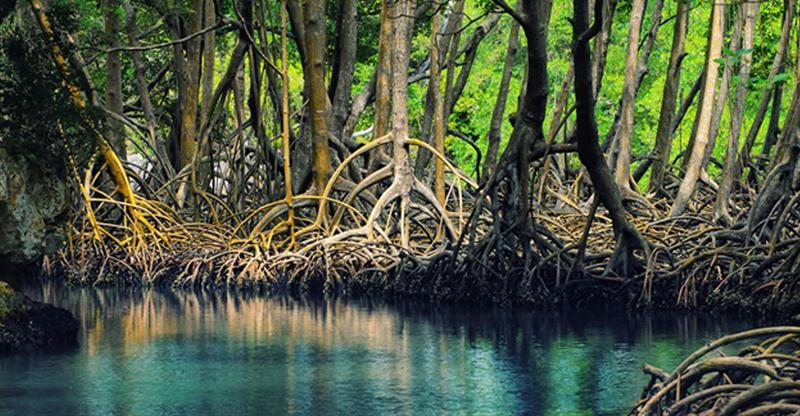Saint Lucia's Mankòtè Mangroves and Savannes Bay have been termed "Wetlands of International Importance."
 The OECS Commission is working on a number of community-based projects aimed at reducing the vulnerability of the region to climate change and improving sustainability.
The OECS Commission is working on a number of community-based projects aimed at reducing the vulnerability of the region to climate change and improving sustainability.
The importance of protecting wetlands was brought into sharper focus when the OECS joined in celebrating World Wetlands Day on Feb. 1. The annual celebration commemorates the Convention on Wetlands (the Ramsar Convention) that was adopted in Ramsar, Iran on Feb. 2, 1971.
The 2017 theme “Wetlands for Disaster Risk Reduction” was selected to raise awareness and to highlight the vital role that healthy wetlands play in helping to build resilience, and in reducing the impacts of extreme events such as floods, droughts and cyclones.
Joan Norville, Project Officer for the Climate Resilient Eastern Caribbean Marine Managed Areas Network (ECMMAN) Project, stressed the importance of wetlands to climate change mitigation in the OECS region.
"The Commission recognizes the contribution of wetlands in enhancing the resilience of our communities in the region. Currently, the OECS is working on a number of community-based projects including some at mangrove sites which are aimed at reducing vulnerability to climate change and sustaining livelihoods," Ms. Norville said.
Saint Lucia is one of three OECS member states that have Wetlands of International Importance or Ramsar sites. The other two are Antigua and Barbuda; and Grenada.
Saint Lucia’s Ramsar sites are the Mankòtè Mangroves and Savannes Bay.